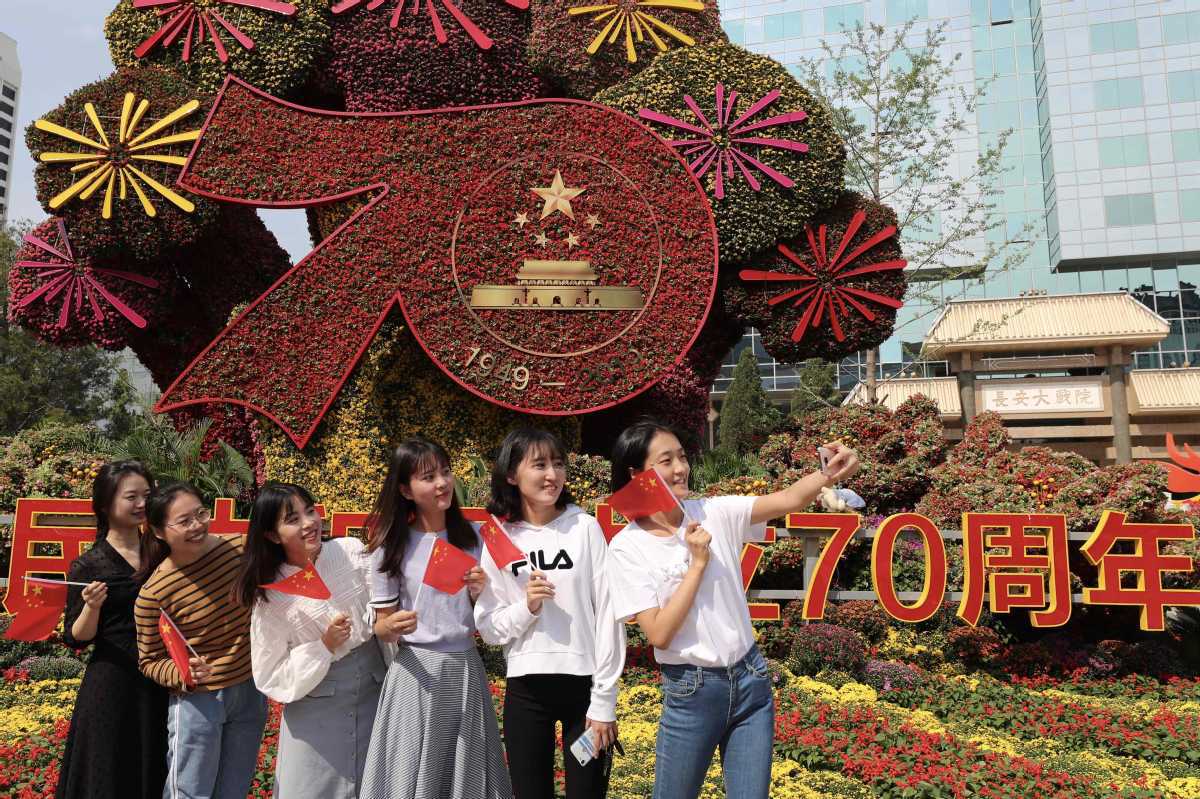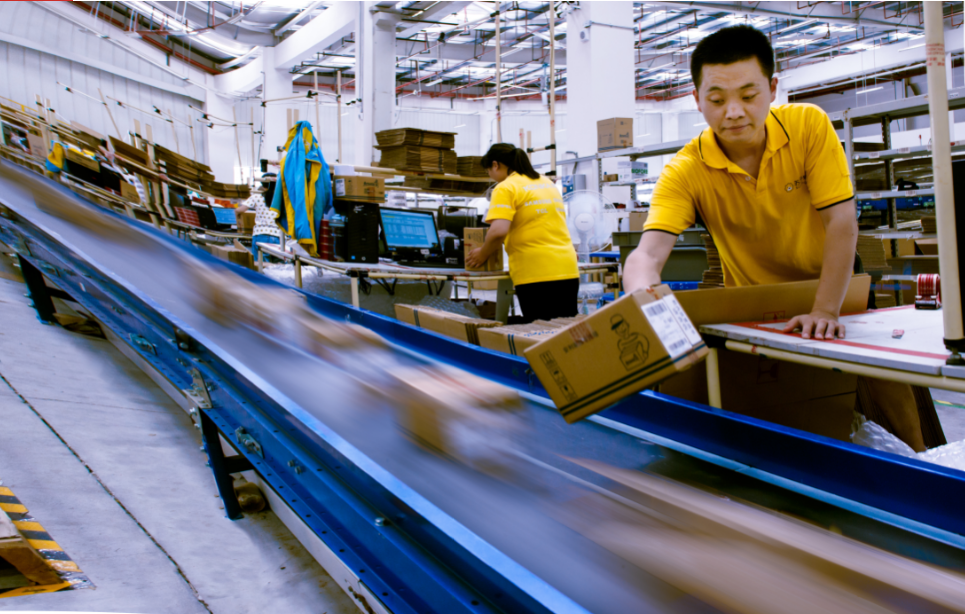
From the People's Daily App.
This is Story in the Story.
China's economy and society have undergone changes in the past seven decades, and so have people's occupations.
In the early years after the People's Republic of China was founded in 1949, the majority of the population worked as farmers. At that time, about 180 million people were employed, and only 8.3 percent of them worked in urban areas.
In 2018, the country's employed population surged to 780 million, with over 56 percent working in cities.
Given the considerable size of the Chinese population and the challenges of transforming from a planned economy to a market economy capable of pursuing high-quality development, China has been mostly successful in keeping employment stable over the past 70 years.
The country has seen constant improvement in its employment structure, with new jobs and opportunities popping up as a result of an evolving economy.
Today’s Story in the Story looks at China’s retail sector and how it has created business opportunities and jobs for people at all levels of society.

People take selfies in front of a flowerbed themed "magnificent 70 years" at the northwest corner of Jianguomen, Beijing, Sept 20, 2019. (Photo: China Daily)
In the winter of 1990, Zhang Jindong quit his stable job, raised funds and opened a 200-square-meter store selling air-conditioners, to compete with the state-run shopping malls dominating at that time.
At the start, Zhang's decision won little support from his family and friends, who thought it was challenging to survive in the then market environment. But the country's support for developing the market economy boosted Zhang's confidence in his business.
Zhang soon alleviated any worries his family had. He innovated business models and took the lead in offering conglomerative services such as delivery, installation, repair, and maintenance. This helped Suning to occupy a 70-percent share in the local air-conditioner sale market in Nanjing in just one year after its operation.
Almost 30 years on, the Suning store in Nanjing, capital of East China's Jiangsu Province, has grown into a retail giant and one of the top private enterprises in China, through its continuous innovation and reform in the Internet era, as well as cooperation with both domestic and foreign firms.
Now boasting 13,000 stores, the retail company has been included among the Fortune Global 500 companies for the past three years. Suning.com, the e-commerce platform of Suning, saw its omnichannel sales volume of commodities increase 21.8 percent year-on-year to $26 billion in the first half of this year.
"The reform and opening-up policies opened the door to the rapid growth of the private sector," explained the 56-year old chairman of Suning Holdings Group.
Suning was founded in 1990 and expanded rapidly after 1992.
"The huge market of our country is the reason for the successful transformation of Suning," said Zhang. "We should always integrate the growth of enterprises with the big development of our nation."

Employees of Suning Logistics, a business unit of Suning Holdings Group Ltd, work at one if its logistic facilities in Shanghai in September 2018. (Photo: China Daily)
With the boom of e-commerce, Suning's online platform Suning.com was put into use in 2010, marking the internet-based transition of home appliance chains, although some employees did not quite understand the step at first.
"The most dangerous thing is to stay within our comfort zone without seeking change," Zhang said.
According to Zhang, Suning is not an e-commerce company, but a smart retailer. Future retail enterprises must adopt an integrated model of both online and offline services, he said, calling for efficient management based on data applications.
In 2015, the company reached a multi-billion-dollar deal on platforms, logistics, and payments with Chinese e-commerce giant Alibaba. Two years later, Suning opened its first unmanned store.
Smart retailing includes the use of cloud computing, big data, and IoT technologies to realize intelligent purchasing, sales, and services, according to Zhang.
These measures have improved the smart retail layout of Suning and enhanced its market competitiveness in big and fast-moving consumer goods, which will provide a more valuable shopping experience to users, Zhang said.
According to the entrepreneur, Suning's plan is ultimately designed to improve the core competitiveness of retail and better meet the needs of users. "Four capabilities -- stores, logistics, technology, and finance -- have helped Suning strengthen its retail business."
Suning is also involved in sports, including investment in two football clubs.
"Sports culture represents an uplifting force and a ray of sunshine, much like Suning's positioning, making it easier to establish emotional ties with consumers," Zhang said.
(Produced by Nancy Yan Xu, Lance Crayon, Brian Lowe and Paris Yelu Xu. Music by: bensound.com. Text from China Daily.)


